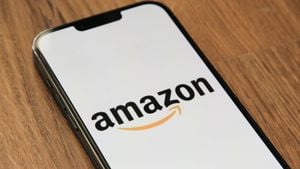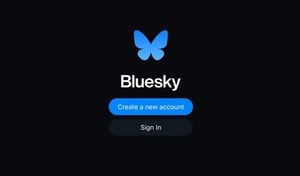OpenAI, the artificial intelligence research lab, has found itself at the heart of a contentious legal and ethical debate concerning copyright law and user accessibility. This situation gathered steam recently when the German Rights Association filed what is being seen as a landmark case against the tech giant, raising important questions about how AI technologies interact with established intellectual property frameworks.
The essence of this conflict revolves around how AI models, like those developed by OpenAI, use copyrighted materials to inform their training processes. Much of OpenAI’s success is built upon extensive training on large datasets, ostensibly including text and data from books, articles, and websites, which often contain copyrighted content. Critics argue this approach could potentially infringe on copyright laws by generating content derived from or mimicking the work of original authors without their consent.
According to reports, the German Rights Association argues the training of AI on such works equates to unauthorized copying, thereby violating the rights of the original creators. They assert this is not merely about the reproduction of works but involves broader ethical concerns tied to fair compensation for creators and the future of intellectual property rights as we know them.
The legal debate has significant ramifications not just for OpenAI but for the entire tech industry. Intellectual property law has traditionally evolved slowly, often struggling to keep pace with rapid technological advancements. The case against OpenAI could set precedence; it may redefine how AI developers navigate copyright issues, particularly as they continually seek to innovate and expand their models' capabilities.
OpenAI has vigorously defended its practices, insisting they adhere to legal standards. They assert their models provide substantial value by enabling users to generate new, unique content based on learned patterns, rather than simply replicately existing material. This, the company claims, promotes creativity and innovation. Yet, the German Rights Association remains unconvinced, arguing the balance of innovation against the rights of creators has swung too far to the former.
This case is not isolated to Germany; it reflects broader concerns experienced globally. Artists, writers, musicians, and other content creators have voiced similar apprehensions about AI's growing presence within creative sectors. The underlying sentiment across these discussions is one of fear and uncertainty—if AI can create based on their works, what does this mean for the future of their artistic integrity and livelihood?
The fallout from this case could lead to stricter regulations governing how AI is developed and utilized, influencing tech companies to tread carefully or risk hefty legal repercussions. Some experts warn the industry needs to create clear policies for using copyrighted materials responsibly, ensuring accessibility to AI tools without compromising the rights of original creators.
Experts also highlight the importance of ensuring these AI models remain user-friendly. There’s significant interest among consumers for AI tools to be accessible and affordable. Balancing this user accessibility with the rights of creators is another facet of the debate, provoking discussions about how to formulate guidelines and restrictions when it involves public access to AI technologies.
Taking this debate even one step back, so what are AI models, and why is this all happening now? AI models like GPT-4 are trained using vast amounts of data from internet sources, books, and articles, enabling them to generate human-like text. The recent explosion of interest and investment surrounding AI has transformed these technologies from niche applications to tools integrated across various sectors.
This surge has led to increased scrutiny. The line between inspiration and imitation blurs heavily with AI-generated content; hence, the concerns deepen. OpenAI's tools offer unprecedented capabilities, allowing users to create diverse content—from articles and poetry to debugging code and even generating marketing strategies—at their fingertips. But with great power often arises great responsibility.
Now, the question many are asking is, will this case result in stricter regulations for AI companies? Experts believe it could push lawmakers to craft new regulations governing AI, focusing not only on copyright but also on ethical uses of such technologies. The goal would be to strike the right balance, fostering innovation and creativity without trampling on the rights of individual creators.
The German Rights Association’s decision to file this legal case could serve as the tip of the iceberg. Other organizations across the world may follow suit, leading to increased litigation against not only OpenAI but all firms specializing in AI technologies. Often, when one company is evaluated, others can learn from the adjustments and changes—making this more than just OpenAI versus the rights groups, but potentially shaping the entire AI industry.
What’s interesting to note is the new frontiers this case could open up. If successful, it could lead to more substantial compensation models for creators within the AI ecosystem. This means establishing fair practices for content generation, helping creators who feel their works have influenced AI outputs get their due credit and reward.
Beyond the legal quagmires, some commentators have suggested there might be other angles to explore—the societal impact of this technology. AI has the potential to democratize access to knowledge and education, offering tools to those who might not have the means otherwise. But at what cost? Are we willing to compromise creators' rights to open the floodgates to technology?
Meanwhile, OpenAI continues to engage with users and creators, seeking to navigate this minefield delicately. Recently, the firm has committed to finding ways to collaborate with content providers, sharing resources and knowledge bases to bolster practices around fair use. This strategy might help it alleviate some of the pushback it’s facing.
For many, these discussions are just beginning. The outcome of the German Rights Association’s claim against OpenAI is set to become the focal point of future debates, not only about copyright infringement but also about what kind of future society wants for the creative industries. The way society interacts with content, technology, and intellectual property could shift dramatically based on the ruling—grabbing the attention of more than just lawyers and tech executives, but educators, creators, and everyday users alike.
The case serves as the first real test of how far the rights of creators extend when it involves innovative technologies. Observers of the tech world are waiting eagerly to see how it plays out. Could this be the beginning of new frameworks, respecting creators' work and compensations, or will innovation continue to march on, sometimes at the expense of those whose creations paved the way?



